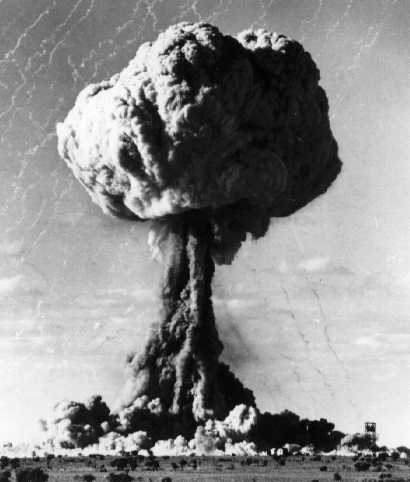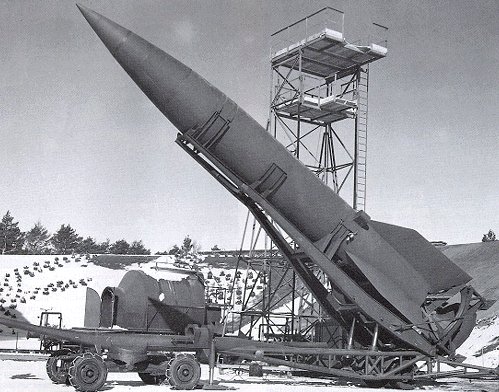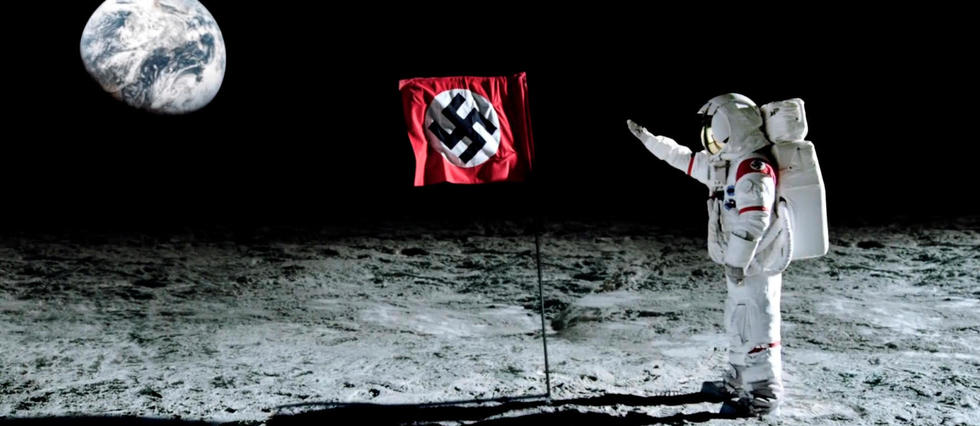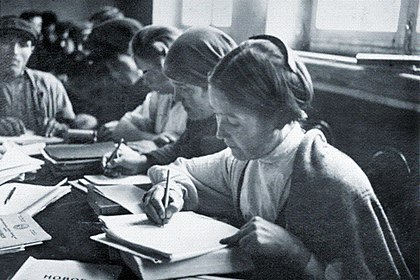Well, a couple issues:
1) political stability of an overall national 3 party system assuming that no dominant coalition of the three parties decides they'd better go over to proportional representation and continue First Past the Post victories. It is generally assumed that FPTP puts very strong pressure on the electorate to collapse to a two party system, because people don't want to "waste their vote." Indeed I could go off on my usual pro-PR hobbyhorse rants and start listing all the reasons I think FPTP is primitive and bad inherently, the fundamental issue being I believe everyone needs positive representation and not virtual representation--in a pure 2 party system, nearly half the population is stuck with the latter, and even small third party presence means that over half of it is. But assume for the moment that FPTP stays by inertia. That being the case, there can still be third parties as the British experience with Parliament indicates, but there too, despite the absence of a separate strong Presidency to tip the balance harder, two parties always dominate. Now the armchair reasoning usually omits to consider the possibility of a scissors-paper-rock situation whereby in particular regions, the races do boil down to two parties but the mix of dominant two varies. I don't just mean by large geographic region--South versus Midwest versus Northeast versus Great Basin inland west versus Pacific Coast--but subregions--big urban areas within each geographic one versus countryside, stuff like that. With your three parties, we could have lefty dominant regions, extreme ones that are safe seats for Progressives, more competitive ones where it is Prog versus Republican with the Democrats squeezed into a lunatic fringe; some supermoderate Republican safe seat zones, onward to more conservative-moderate zones where it is a revolving door between Republicans and Democrats and the Progressives look on from the sidelines as the regional outcasts, on to Democratic safe seats. And maybe conditions might even exist where certain regions are highly polarized battlegrounds between closely balanced Progressives versus Democrats and the Republican appeal to "moderation" is contemptuously rejected by both sides of the split electorate as dead armadillos in the middle of the road. Thus each party has its strongholds, flanked by regions where they tend to win more often than not but are in serious competition, and regions that shift all over the spectrum, the outcome being a roughly even split of each party getting about a third of House and Senate and each around a third of the states at any given time--I daresay that would fluctuate dramatically with periods where any of the three plummet to a nadir of 15-25 percent holdouts in strongholds while the other two ride higher.
I like to think that eventually the logic of going over to PR would prevail as current high rollers contemplate how they might be plunged down to third place or even destroyed in some foreseeable future circumstance and resolve that in the future, all their votes have to count for a fair share of the legislatures or they could be wiped out completely. If the majorities of two dominant parties soberly fear that, and the electorate is persuaded (as I think they ought to be by sweet logic) they are best off with PR, getting 3/4 of the states to get an amendment mandating it for state legislatures and the national vote for Congress (and yes, I have a rather complicated scheme to get it for Senate as well, in a distorted form giving each state an equal weight regardless of population, but the citizens of all states weighing in collectively on each election--or anyway the roughly 2/3 of states involved in a given Senate "class" election).
Given PR I suppose as far as sheer electoral political mechanics goes, a three party system might be sustained forever, though more likely second tier small parties would then splinter off the Big Three along with upstart challengers from outside them completely--these would batten on to a major section of the vote and reduce the Big Three to averages well below 33 percent, say 20 or so, from which they almost never fluctuate to over 50 and coalition legislatures become the norm.
After all the FPTP/Two Party OTL American system relies on there being one party that holds a majority, giving its self-selected leadership official positions as the leading parliamentary office holders, and defining specified roles for "the" Minority party--in the US Congress third party members are so rare they can be disregarded if they won't simply caucus with one major party or the other. With three parties surviving despite FPTP, we'd need to rethink how Congress is organized--it makes no sense to call one party "the majority" when it only holds say 42 percent of the seats with the others split between the other two; no "majority" would exist without two parties caucusing with each other--or Members turning maverick and forming shifting coalitions of individuals as they see fit, party discipline be damned. Some new system would have to develop amounting to proportional power sharing, in terms of who names who gets to sit on which committees, who runs each committee, and so forth. Thus if PR were adopted to determine membership the body would be prepared by experience for major fragmentation. Probably it would not reach OTL Brazilian levels, but it might well resemble the situation in Germany or France.
2)--deeper socio-economic-political dynamics would I suspect transform the very terms of debate and undermine the position of OTL conservatives and pro-capitalist "moderates" fatally. To avoid this, you have to assume that Long's high flown schemes for radical economic transformation are defeated and he is reduced to being a New Dealer type technocrat. If the Progressives can ever agree upon and push through something resembling Share Our Wealth, the deep foundations of society are going to be completely rebuilt on a new plan. As with PR I say goody, but your dilemma here is that if you decide to preempt that with conservative business as usual only slightly moderated by rescindable welfare programs, then you've pretty much neutered Huey Long!
Let's say for a moment that SOW actually comes about in some form. Its foundation is a draconian wealth tax, which liquidates the existence of the OTL plutocracy as a class. As proposed he was arguing for total and immediate confiscatin of all fortunes over a certain cut line; I expect to be implemented this would be converted to a more graduated wealth tax, with an exemption floor of some millions of dollars and after that a steeply rising percentage of outstanding wealth in excess of that that in effect sets a ceiling since at some level it would be impossible to earn enough each year to pay the wealth tax; fortunes would be whittled down to a rather narrow range between the floor and this practical upper limit, and the very rich subject to this tax would, in terms of the total fraction of national wealth owned or the scale of separation between their curtailed average and that of the nation, much reduced, so that the various forms of power that automatically fall into the hands of wealth owners would be weakened versus the average citizen. Then, the vast transfers of money leveraged by this wealth tax are redistributed mostly in the form of a national minimum income for all--it would not be too wasteful to simply give a fixed sum to everyone regardless of means since the rich getting a small fraction of what was taken from them back would have small numbers. With this guaranteed income, workers are in a far stronger bargaining position, but employers are also freed of any moral obligation to their workers; they can offer wages as low as they like, and workers who take such an offer are agreeing to be paid little more than national income. Since the latter is probably adequate to provide for everyone's basic needs, the basic consumer goods market is very stable. There is now no way for single owners, or groups of very few, to control large corporations; the only way to gather large amounts of capital would be to form very large coalitions of small shareholders. Syndicalists would be in a good position to organize worker-owned enterprises.
The dynamic of wages would thus be radically changed, and so would be the economic cycle.
Still mindless booms and busts might happen. However a Progressive party that accomplished such a tremendous coup would have very great political legitimacy; neither Democrat nor Republican could claim any credit for this vast social revolution. Should the market fall upon hard times, with the moderate sized fortunes of small owners being blighted and the sources of national income payout drying up, in the crisis will voters meekly shake their heads and conclude the great experiment was doomed to fail just as the conservatives warned, or will they rather double down and refuse to see their incomes dried up and themselves thrown back on the mercy of a handful of oligarchs as they were before? When the nature of the crisis probably is yet another failure of mindless market mechanisms to provide an even keel of activity? Would they not be willing to listen to Progressives who suggest that by intelligent intervention in the market, by guided investment, the levels can be restored? Meanwhile, if worker-owned firms are a substantial sector, might not their dynamics prove rather different in such a crisis than capitalist owned ones? I assume that there would be a spectrum of ownership patterns, but in case of a global or national capitalist crisis, the profit-dependent capitalist owned firms would be the ones facing dwindling assets, between the devil of the SOW tax collector and the deep blue sea of market based profits receding and drying up their revenues, and they can be expected to panic as usual and start shutting down operations to stop losses. But worker owned firms have no self-interest in such shutdowns, and part of their own operating revenues are a net inward subsidy via the national income payouts. If politically the majority of voters can insist the national payouts hold without cutbacks, or minimal ones, causing a net deficit, the worker owned firms can continue operations, keeping production going despite the tendency of a crash; the laid off former workers of capitalist firms still have their incomes to purchase essential goods and maintain demand; market share shifts to the most syndicalist firms and away from the most for-profit operations, and overall material production has an inherent brake on the rate of collapse versus more laissez faire low tax nations overseas. Americans as private consumers can still afford to buy imports and the prices of these are likely to have crashed down, meaning smaller outlays can purchase the same consumer goods and same industrial inputs at a lower price. Wealth flows into the USA at the expense of the private enterprise dominated overseas competition; American firms continue to offer goods for sale, perhaps at reduced price but the American firms can take considerable hits in revenue and remain operational, especially if everyone takes a lax attitude toward credit. The American system looks good compared to the examples of the old regime on display overseas and the political option of imitating American ways will gain stock in European democracies and perhaps in such third world nations that are formally independent such as Latin America.
If in fact state intervention can stabilize the crisis in view of these strange American peculiarities, the stock of the left, indeed to the Left of the Progressives, will begin to rise. Beyond the Progressive party, or comprising a rising left wing of it, or pulling the center of mass of that party leftward, the notion that the national government should simply nationalize the means of production and vest control in worker's councils of the various firms who agree to be guided by a coordinating structure comprised of their own delegates advised by economic experts hired by the national government will gain credibility. This is democratic socialism, pure and simple. On the right of course will be much wailing and gnashing of teeth, and very possibly bold, even violent, action to preempt and discredit such actions. But if SOW is in place, figures acting like that will stand out as sore losers, bad actors, dangerous radicals, and society will close ranks on them forcing them, with threat of prison, exile or execution for treason, to cease and desist and get with the program. The credibility of the Democrats will implode if the leftists can pull the nation through and demonstrate that there are methods other than the blind play of market forces to deliver a prosperous and reliable economy.
And the Republicans? What can they do but either panic, appalled, and join forces with the desperate conservatives before it is too late, or get on the "me, too!" bandwagon and try to limit the degree to which the popular shift to democratic intervention in the economy is institutionalized, advocating for retention of differential money incentives as somehow vital to the Republic? They must go left or get out, or of course maybe they succeed in sabotaging the economy and blaming the left for it.
The Progressives of course might include numerous members who fear socialism goes too far and are just as queasy or worse about democratic production for use as the old line Democrats and Republicans are. Perhaps the party moves left, perhaps they find themselves becoming the centrists as wildcat Socialists of various kinds steal one constituency after another from them. Perhaps regions that were once hardline conservative leapfrog past Longist "soak the rich" rhetoric when it is transformed into "Seize the means of production and produce for all!"
I suppose it might take more than one economic cycle to work such a deep change on America.
Now everything I have said was premised on Long implementing SOW, which is a long shot of course. Let us say that the Progressives accomplish many things but never manage such a radical change as that, and we have basically a New Deal sort of economy with high income taxes on the rich (on paper) and extensive government layouts for various itemized programs, many of which go to the middling sorts or even back to major corporations as corporate welfare, so the poor are getting rather little although what they do get often makes a tremendous difference to them. Now we hit a crisis--is it slam dunk foreordained that conservatism and austerity must prevail, or might not the less well off democratic masses say wait a minute, we need this, and we were promised a lot more, and this mess is not our doing, and we held off and did not soak the rich, and now look where they have brought us and tell us we are to blame for it too! Might not the strength of the progressive party enable democratic majorities of the less well off to seize control and take whatever measures seem expedient to them--again if they have intellectuals with a well thought out plan of how to make the most of it they can perhaps pull off a coup of successful management.
Each time they do that, they undermine the argument of pro-capitalists who say that no one can better themselves at the expense of the primary priority of capitalist prosperity first. The leftward shifting I compressed into one cycle might really take three or four, but get there eventually.
Or of course you can say that no democracy anywhere in the world has ever gone so far as to seriously curtail the basic rights of private wealth and all must fail to do so, but in that case the left is pretty well doomed to failure and collapse eventually as they have no credible leverage on the political process, "nowhere to go." In that case the existence of the Progressives as a radical party is an aberration based on people believing in promises that can never in the nature of things be fulfilled and either the Progressives evolve rightward to be the party of responsible light tinkering with the superstructural machinery, forcing the Republicans rightward (with some migration, more progressive Republicans finding it easier to join the nominal Progressives as they back off from radicalism, more bitterly conservative Republicans migrating to the Democrats) and possibly squeezing them out as the Democrats gradually recover ground with the vindication of their hard line on property raising them up.
Being optimistic as I am that given the opportunity, technocratic tinkering with economic variables under the aegis of a very populist leftist regime that is not too mesmerized by the sacredness of property to undertake massive redistributive taxes, set practical ceilings on wealth, and manipulate the redistribution of wealth with the intention of achieving superior performance on democratic and egalitarian terms, the mechanisms of private competition will prove more and more superfluous and pointless, I would expect that if the Progressives can go so far as to institute SOW on a scale that supplies a livable basic income and strongly checks the maximum size of fortunes, within a half a century or less the system will evolve into straightforward socialism and from there toward moneyless communism. Obviously partisan dynamics, assuming this evolution happens in the context of a democratic government with freedom to form partisan factions as an assumed part of the system, would therefore be shifting ever leftward with positions once considered progressive becoming first moderate and then conservative and eventually hard extremist reactionary; yesterday's conservatives must always be either moderating their views or if they cannot keep being dragged leftward start kicking and screaming and eventually either drop out of effective politics or be criminalized, since they will have little to no traction electorally and can only justify their extremism with a perception of violence being called for. My hope would be that these cases would be few or none.
I have trouble envisioning having it just sort of hover frozen in amber. If progressives cannot justify their encroachments on the powers and privileges of private property, propertarians will sooner or later find leverage to take them back again, and seek to discredit the radicals thoroughly.









